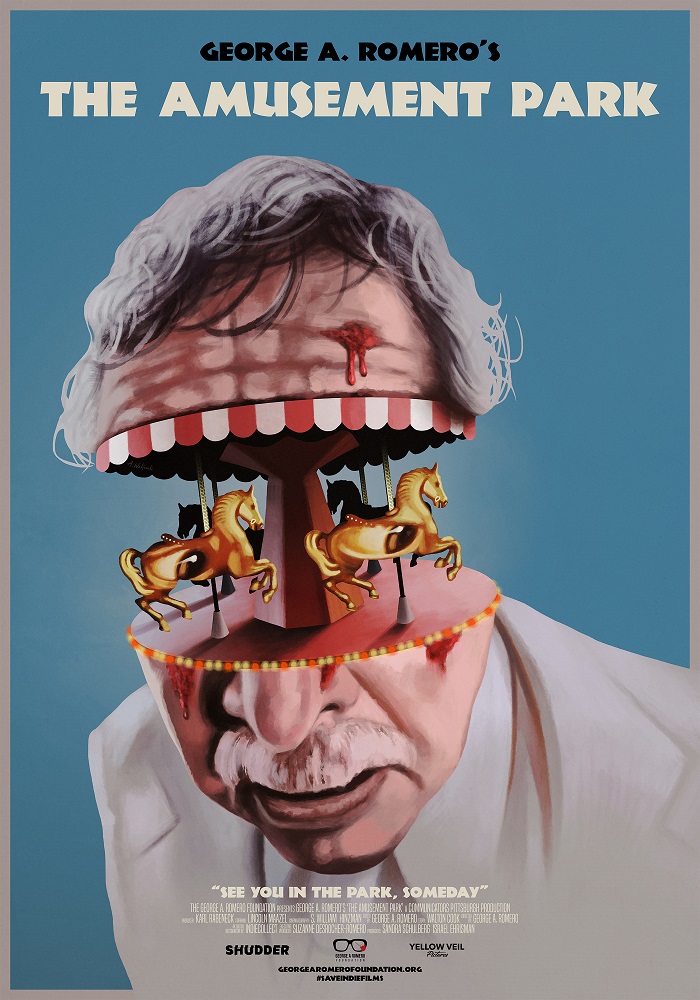
In the late 20th Century, several religious organizations sponsored dramatic TV shows. These shows ran as religious or public service programming, usually on Sunday mornings. Although it might seem, on the surface, that these shows pandered to religious viewers, the dramas were well-written and acted, with subject matter that appealed to a wide range of people. (Even atheists could like some of the episodes.)
Insight, a morality-themed TV show sponsored by the Paulist Fathers, ran from 1960 to 1985. Dozens of well-known actors such as Patty Duke, Carol Burnett, Walter Matthau, and William Shatner starred in vignettes about suicide, drug abuse, and other controversial topics. Another drama sponsored by a Christian religious organization, This is the Life, ran until 1988. Although many popular actors, writers, and directors worked on these public service programs, Night of the Living Dead director George A. Romero is probably the most surprising name to appear on one of these projects.
In 1973, the Lutheran Society commissioned George A. Romero to direct a film about the indignities of old age and how society treats the elderly. Due to a copyright snafu, Night of the Living Dead never made Romero any money directly; it stayed in the public domain. Romero got all the glory of being the director but not the cash. He resorted to projects like The Amusement Park to make money in between his own early ‘70s films such as The Crazies and Martin.
Romero directed The Amusement Park from a script by Wally Cook. The film never aired because the Lutheran organization deemed it to be too disturbing. (The content is emotionally jarring, especially if you’re a senior, or close to becoming one.) It doesn’t have the gore of Romero’s pure horror films, but the psychological and emotional torment the nameless character suffers is more frightening, in the long run, than a momentary glimpse of blood and guts.
The Amusement Park remained under wraps until Guillermo del Toro collaborator Daniel Kraus found a print of it in 2018. With the help of Romero’s widow, Suzanne, and fans who contributed to a restoration fund, the film has been upgraded and released.
Lincoln Maazel stars as the film’s nameless elderly parkgoer. (Maazel starred as Cuda in Romero’s Martin.) After ignoring a warning to avoid the park, he walks out into the busy midway. Youngsters go by without a care in the world while seniors wander aimlessly and barter with a harried ticket taker to get on the rides. The extras in the film were real-life seniors from assisted living homes or similar circumstances, according to the film’s introduction. As Maazel walks around the park trying to enjoy his day, simple tasks, from sitting on a bench to picking up a bag of food, turn into nightmares.
The white-suited Maazel encounters hucksters trying to sell overpriced homes to retirees. Monty Python-esque waiters pamper a rich patron while ignoring poor, hungry seniors. He then suffers the indignity of a bumper car accident, and gets blamed for it due to his age. (Romero even makes an appearance as a bumper car driver.) Maazel’s character is tormented by a gang of long-haired, leather-jacketed bikers in a deserted part of the park. Even though the physical violence is not as intense as the usual Romero film, it’s disturbing and proffers a real sense of foreboding.
In the only major scene that doesn’t focus on Maazel’s character, a fortune teller gives a starry-eyed young couple a glimpse into their future. They see a vision of their old age in a slum apartment as the wife struggles to get to a payphone and call a doctor to help her sick husband.
Near the end of the film, it seems the main character has found a friend as he reads a story to a young girl, but even this bit of good fortune doesn’t last for long.
The Amusement Park will be available exclusively on Shudder on June 8th. It’s a compact, powerful film and a fitting addition to Romero’s legacy. If you’re a Romero fan, or like topical films with a psychological edge, The Amusement Park is worth a look. Romero’s depiction of discrimination against the elderly is just as harrowing and true today as it was back in 1973. A side note: Maazel didn’t start his acting career until he was in his 50s, and passed away in 2009 at the age of 106.